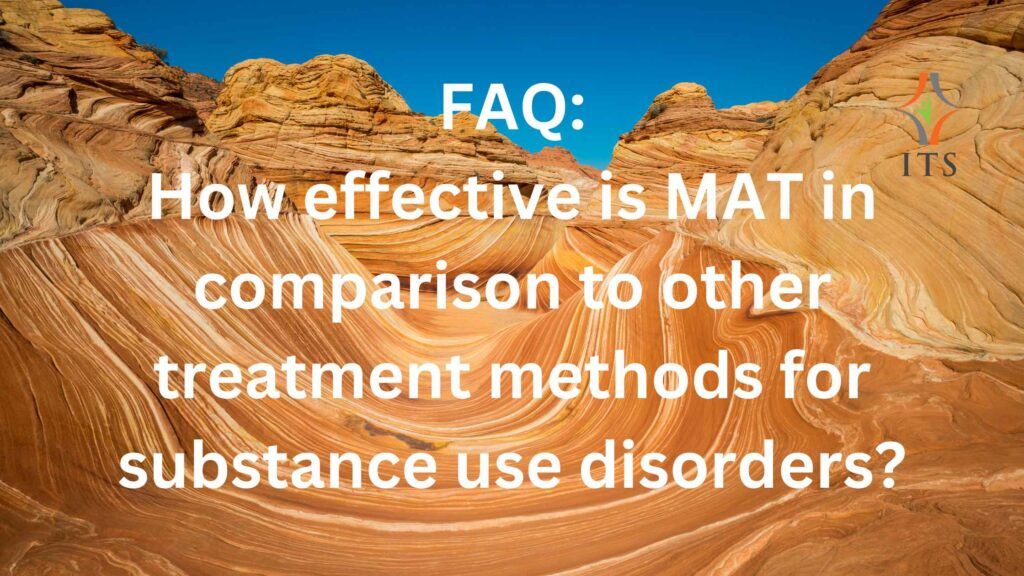
In the realm of addiction treatment, Medication-Assisted Treatment (MAT) has emerged as a significant and evidence-based approach for managing substance use disorders, particularly opioid use disorder. The effectiveness of MAT, when compared to other treatment methods, can be understood through its multifaceted impact on the individual’s journey towards recovery. This analysis is informed by recent studies and systematic reviews that have evaluated MAT’s outcomes across various dimensions of effectiveness.
Understanding MAT
MAT combines pharmacological interventions with comprehensive behavioral therapies to treat substance use disorders. This method is predicated on the understanding that addiction is a multifactorial health issue that impacts brain chemistry, behavior, and social functioning. The medications used in MAT, such as methadone, buprenorphine, and naltrexone, are designed to normalize brain chemistry, block the euphoric effects of opioids, relieve physiological cravings, and stabilize body functions without the negative effects of the abused drugs.
Comparative Effectiveness of MAT
Recent research has provided substantial evidence supporting the effectiveness of MAT in comparison to non-medication approaches:
Increased Retention in Treatment:
Studies have consistently shown that patients receiving MAT are more likely to remain in treatment compared to those receiving non-pharmacological interventions alone. For instance, a study published in JAMA Psychiatry found MAT to be cost-effective from a healthcare perspective, emphasizing its role in improving treatment retention rates.
Reduction in Illicit Opioid Use:
MAT has been associated with a significant reduction in the use of illicit opioids. By mitigating withdrawal symptoms and reducing cravings, MAT enables individuals to focus on their recovery and rehabilitation processes.
Improved Functional Outcomes:
While there are concerns regarding cognitive function among MAT patients, the overarching evidence suggests that individuals on MAT exhibit better functional outcomes across various areas of life, including employment status and social relationships, compared to those not receiving medication-assisted interventions.
Lower Risk of Overdose:
MAT significantly reduces the risk of fatal and nonfatal overdoses, a critical factor given the current opioid epidemic. This protective effect underscores the importance of MAT in public health strategies aimed at addressing opioid-related mortality.
Cost-Effectiveness:
From an economic perspective, MAT has been identified as a cost-effective treatment option. It not only improves health outcomes but also reduces healthcare costs associated with untreated substance use disorders, including hospitalizations and emergency department visits.
Barriers and Considerations
Despite its efficacy, MAT faces barriers to implementation, including stigma, regulatory constraints, and a lack of perceived effectiveness among some healthcare providers. Addressing these challenges requires ongoing education, policy reform, and support for integrated treatment models that embrace MAT as a cornerstone of substance use disorder treatment.
Conclusion
Medication-Assisted Treatment is a powerful tool in the arsenal against substance use disorders. Its effectiveness, evidenced by improved retention rates, reduced illicit drug use, enhanced functional outcomes, lowered overdose risk, and cost-effectiveness, positions MAT as a superior treatment modality in comparison to non-medication approaches. At Intensive Treatment Systems, we advocate for a holistic, patient-centered approach to addiction treatment that includes MAT as a key component. Our commitment is to provide evidence-based, compassionate care that supports each individual’s path to recovery.
For those seeking more information or ready to explore treatment options, we encourage you to reach out. Together, we can develop a personalized treatment plan that incorporates the most effective strategies, including MAT, to meet your unique needs and goals. Your journey to recovery is our priority, and we are here to guide you every step of the way.
